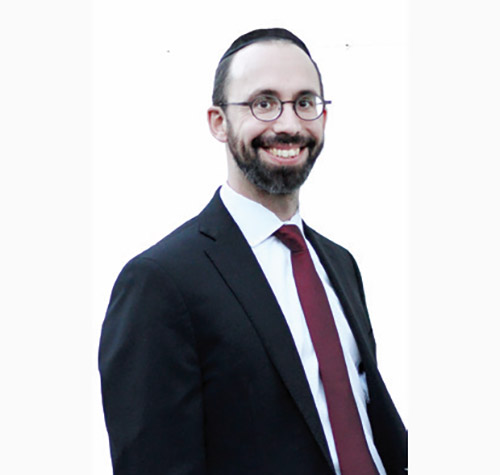
Warfare is dangerous. People get hurt, spirits are broken and some battles are lost. Victories happen when there’s true perseverance—when the weary soldiers don’t give up. They rise up to fight with all their might, again and again until they are victorious. The same holds true with the wars inside us—the spiritual battles we wage with the yetzer hara (evil inclination). We may feel outmatched at times, but these are the struggles that make us stronger in our lifetime journeys to attain the Divine potential we were given. But it’s always a struggle. We will win some battles and lose some others. The key is perseverance.
In Parshas Chukas, the Bnei Yisrael are at the end of their long 40 years of wandering in the desert and close to entering Eretz Yisrael. Edom refused to grant Bnei Yisrael entry, so they traveled around Edom and requested permission to pass through the land of Sichon. This time, not only were they barred entry, but Sichon advanced on Bnei Yisrael and attacked them. Og did the same.
It was discouraging. It was frightening. Yet Hashem helped the Bnei Yisrael deliver crushing blows to those two nations; the land of Sichon and Og would be annexed to Eretz Yisrael and even gain kedushas (holiness of) Eretz Yisrael. Why would Hashem want this land annexed to Eretz Yisrael?
In Tehillim 136, King David lists 26 items with regard to which we respond ki l’olam chasdo, thanking Hashem for His eternal kindness. Indeed, four of the items listed include the defeat of Sichon and Og and the conquering of their lands. It is quite puzzling: what is the eternal benefit of the defeat of those nations that attacked Bnei Yisrael in a one-time war?
The Siddur HaGra brings a midrash that explains that Hashem made Sichon and Og fight with the Bnei Yisrael so we could defeat them and conquer their land as a gift to us. This gift was Hashem’s way of showing Bnei Yisrael that He recognized their long and arduous 40 years of wandering in the desert. In modern terms, this gift of additional land was “icing on the cake” of Eretz Yisrael.
The Sfas Emes adds in the name of the Chidushei Harim that these were not just physical wars, but a sparring of opposite spiritual forces. Sichon is referred to as the king of Cheshbon, which means calculations or accounting in Hebrew. This is performed by a person’s thought process, corresponding to the tefillin worn on the head. Og was the king of Bashan, whose capital was Edrei, which means arm. This represents controlling our actions, corresponding to the tefillin worn on the arm.
Sichon and Og, besides being the physical nemesis of klal Yisrael, represented the spiritual challenges of the world of thought and action. Had they succeeded in conquering Bnei Yisrael physically, they also would have led them astray spiritually. The victory over those two nations therefore signified much more than the physical conquering of the land. It signified the victory of our controlling the areas of thought and action in a spiritual manner. The victory we experienced in those cosmic battles brought holiness into those two lands that became part of Eretz Yisrael.
This is a major encouragement for us as we find ourselves in the end period of a very long and difficult exile, spanning almost two thousand years. We feel weary, like the Bnei Yisrael at the end of the 40 years in the desert. At times, we sense our stamina waning. We may slip and fall down. Yet Hashem created this struggle for us to overcome! Our victory long ago in the lands of Sichon and Og can serve as beacons to encourage us. Even a one-time spiritual victory can be an eternal victory that strengthens us for generations to come.
The message is clear: our battle to control our thoughts and actions opens up venues of holiness that will benefit us now and serve as a beautiful inheritance we can pass on to future generations.
By Rabbi Baruch Bodenheim
Rabbi Baruch Bodenheim is the associate rosh yeshiva of Passaic Torah Institute (PTI)/Yeshiva Ner Boruch. PTI has attracted people from all over northern New Jersey, including Teaneck, Bergenfield, Paramus, Rockaway and Fair Lawn. He initiated and continues to lead a multi-level Gemara learning program. Recently he has spread out beyond PTI to begin a weekly beis midrash program with in-depth chavrusa learning in Livingston and Springfield. This year he joined Heichal Hatorah in Teaneck as a Gemara iyun rebbe. His email is [email protected].













